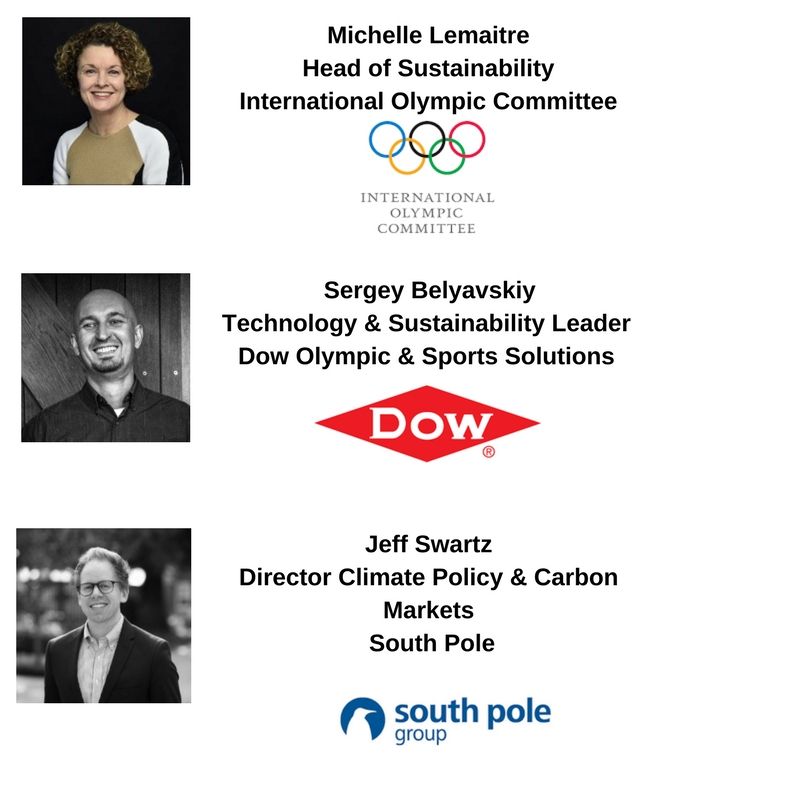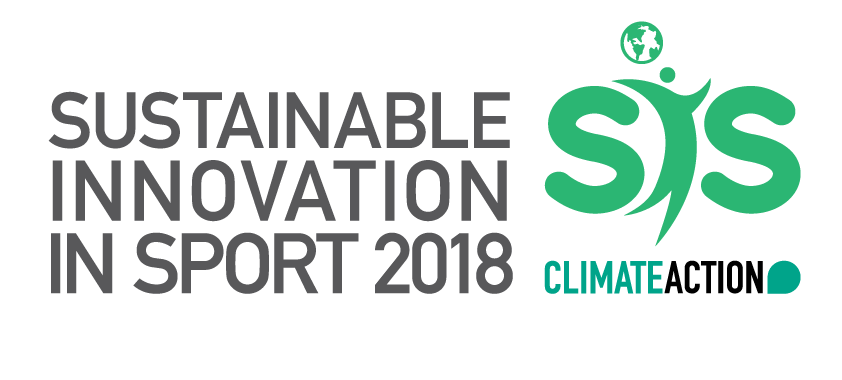
Can you imagine a world where combating climate change is an exciting and inspiring opportunity, an opportunity to harness the power of the best, to raise the bar, to overcome hurdles and to redefine the role of business and sport in society?
Climate change is one of the greatest challenges facing our society, already affecting natural environments and people around the world. In 2017, global CO2 emissions have risen again, after being flat for 3 years. Hence, global greenhouse gas emissions in 2020 are likely to be at the high end of the range projected by scientists under the 2°C and 1.5°C temperature scenarios, making it increasingly difficult to be on track to meet the global 2030 emission goals. 1
Many of the technical solutions needed to close the gap already exist and the challenge lies in getting these implemented faster, more broadly and at scale. For climate action to gain momentum and reach scale with global impact, collaboration across different stakeholder groups and value chains are required. The Paris agreement has set the framework, however, to drive rapid response and prepare sectors, voluntary actions within and alongside the nationally determined contributions need to be part of the solution.
The Webinar Redefining the Role of Business and Sport highlights examples of proven collaborations that lead to tangible climate action, discusses approaches to overcome barriers in the introduction of lower-carbon solutions and decarbonisation of value chains and describes how voluntary economically viable approaches can support the Paris Agreement.
This Webinar, taking place in the lead up to the 2018 Forum on Sustainable Innovation in Sport, gathers world-leading experts from Sport, Sustainability and Science to discuss new partnerships that drive voluntary climate action and highlights the role sport can play to drive collaboration.
Discussion points:
- How can Sports organizations make climate action a key focus in their sustainability and legacy strategies? How is the International Olympic Committee controlling direct impacts and influence and leading the Olympic Movement on climate action? How can Sports brands increase engagement and collaboration across value chains?
- If solutions for de-carbonization exist, why have they not been widely implemented? What are the barriers and risks, and how can they be removed (going beyond business as usual)? What are successful examples where this has worked and learnings derived? How these examples re-define the role of sport and business by delivering a positive climate legacy in the region?
- How can we expect voluntary standards to evolve in preparation for a post-Paris world? What role can voluntary programs have to support the delivery of the NDC targets? How does the opportunity for voluntary climate action (going beyond business as usual) differ in different regions? How can “voluntary actions” become synonymous with “sustainable business solutions”?
Who should attend:
- Sport event organizers that want to learn about how to create an impactful climate strategy
- Government or city representatives that are creating policy measures to reduce emissions
- Architecture, design and construction firms interested in implementing low carbon practices
- Manufacturing businesses interested to produce products for the infrastructure and packaging value chains
- Retailers wanting to eliminate waste in their own operations
- Carbon experts and consultants
- NGOs
And anyone who is interested to find out more about how to advance the adoption of lower-carbon solutions!
Why attend
- Understand the key principles of integrating climate action into a sustainability strategy.
- Hear best practice and lessons learned from global industry experts actively working on mitigation projects globally.
- Understand what is holding back the wide adoption of low-carbon solutions in different sectors and what the perceived risks are.
- Be inspired by sport on how Sport and business can collaborate to take action and create a positive climate legacy.
- Get your questions answered live!


